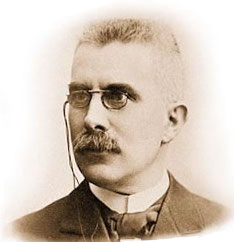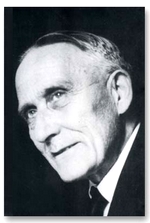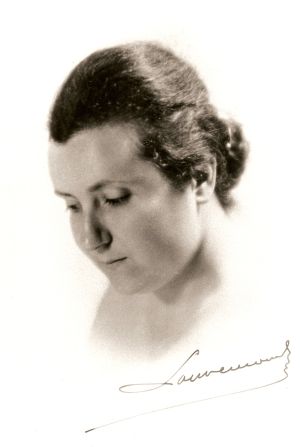Related Research Articles

Islam in France is a minority faith. Muslims are estimated to represent around 5% of the nation's population as per the Statista and Le Monde, although Insee claims that in metropolitan France this percentage can reach 10%. After conquering much of the Iberian peninsula, the Umayyad Muslim forces invaded modern day southern France, but were decisively defeated by the Frankish Christian army led by Charles Martel at the Battle of Tours in 732 AD, thus preventing the subsequent Islamisation of the Western Europe. During a later incursion, Muslims established the fortress Fraxinetum.

Henry Louis Le Chatelier was a French chemist of the late 19th and early 20th centuries. He devised Le Chatelier's principle, used by chemists and chemical engineers to predict the effect a changing condition has on a system in chemical equilibrium.

Claude Cahen was a 20th-century French Marxist orientalist and historian. He specialized in the studies of the Islamic Middle Ages, Muslim sources about the Crusades, and social history of the medieval Islamic society.

Louis Massignon was a French Catholic scholar of Islam and a pioneer of Catholic-Muslim mutual understanding. He was an influential figure in the twentieth century with regard to the Catholic church's relationship with Islam. He focused increasingly on the work of Mahatma Gandhi, whom he considered a saint. He also played a role in Islam being accepted as an Abrahamic Faith among Catholics. Some scholars maintain that his research, esteem for Islam and Muslims, and cultivation of key students in Islamic studies largely prepared the way for the positive vision of Islam articulated in the Lumen gentium and the Nostra aetate at the Second Vatican Council. Although a Catholic himself, he tried to understand Islam from within and thus had a great influence on the way Islam was seen in the West; among other things, he paved the way for a greater openness to dialogue inside the Catholic Church towards Islam as it was documented in the pastoral Vatican II declaration Nostra aetate.

The Grand Mosque of Paris, also known as the Great Mosque of Paris or simply the Paris Mosque, is located in the 5th arrondissement and is one of the largest mosques in France. There are prayer rooms, an outdoor garden, a small library, a gift shop, along with a cafe and restaurant. In all, the mosque plays an important role in promoting the visibility of Islam and Muslims in France. It is the oldest mosque in Metropolitan France.

Malek Bennabi was an Algerian writer and philosopher, who wrote about human society, particularly Muslim society with a focus on the reasons behind the fall of Muslim civilization. According to Malek Bennabi, the lack of new ideas in Islamic thought emerged what he coined civilizational bankruptcy. He argued that in order to recover its former magnificence, Islamic society had to become an environment in which individuals felt empowered. In order to satisfy his spiritual and material needs, a Muslim needed to feel that his industry and creativity would find reward.

Youakim Moubarac was a Lebanese French scholar. He was an Islamologist, an Arabist and a disciple of the Orientalist Louis Massignon and of philosopher Louis Gardet. A Maronite priest, Moubarac dedicated his life and major works to interfaith dialogue between Christianity and Islam, to Arab and Lebanese causes, to the unity of the Church and to the Maronite Church Antiochian heritage.

Antoine Sfeir was a Franco-Lebanese journalist.
Louis Gardet was a French Roman Catholic priest and historian. As an author he was an expert in Islamic culture and sociology who had a sympathetic view of Islam as a religion. He considered himself "a Christian philosopher of cultures". Islam's men, Mentality of Approaches is one of his best and most widely read works.

Jean de Menasce (1902–1973) was a French Catholic priest, of the Dominican Order, as well as an author and academic. He came from Jewish Egyptian and French parentage. Over his lifetime he mastered fifteen languages, including Hebrew, Syriac, and Pahlavi. He was in the Catholic contingent among Jewish and Protestant leaders at an important post-war interfaith conference. Menasce wrote as a theologian, and as a scholar of Middle Eastern studies, especially regarding Judaism, and the Zoroastrian religion.
Le Réveil juif was a French language revisionist Zionist weekly newspaper published from Sfax, Tunisia.

Charles Pellat was a French Algerian academic, historian, translator, and scholar of Oriental studies, specialized in Arab studies and Islamic studies. He was an editor of the Encyclopaedia of Islam published by Brill Academic Publishers, and a member of the Académie des Inscriptions et Belles-Lettres.

The Principality of Debdou was an autonomous hereditary viceroyalty that existed in eastern Morocco from 1430 to 1563, with its capital at Debdou. It was governed by the Ouartajin, a dynasty of Berber descent, related to the Marinids and Wattasids.
Gérard Troupeau was a French scholar agrégé of Arabic, a professor at the Institut national des langues et civilisations orientales from 1961 to 1990, and director of studies of Arabic philology at the École pratique des hautes études.
Jocelyne Dakhlia is a French historian and anthropologist. A director of studies at the École des hautes études en sciences sociales, her work is concerned principally with the political and cultural history of Islam in the Maghreb countries bordering the Mediterranean Sea.

Jeanne Scelles-Millie was a French architectural engineer and author who was born in Algeria and lived there until it gained independence from France. She was interested in inter-faith dialog between Christians, Jews and Muslims. She published several collections of North African folk tales and legends. She and her husband Jean Scelles were active in fighting prostitution.

Frédéric Alfred Le Chatelier was a French soldier, ceramicist and Islamologist. He spent most of his military career in the French African colonies. After leaving the army he was involved in a project to build a railway in the French Congo. He fought a duel and killed his opponent over mutual accusations of improper conduct concerning the Congo railways. He founded and ran a ceramics workshop for a few years before becoming a professor of Islamic Sociology at the Collège de France from 1902 to 1925. He exerted considerable influence over French policy towards the Muslim subjects of France's colonial empire, arguing for policy based on solidly documented facts, and for tolerance and sympathy to the rapidly changing Muslim societies.

Paul Luc Olivier Bluysen was a French journalist and politician. He was deputy and then senator for French India from 1910 to 1928.
Lucien Bouvat (1872–1942) was a French orientalist and Islamic scholar. He researched various Islamic dynasties and communities, including the Timurid dynasty, the Barmakid family, and the Ahmadiyya religious community of Qadian.
Djamila Debèche, sometimes written Debêche or Debbeche, was French-Algerian feminist writer. She was a pioneering journalist and novelist in Algeria, where she was one of the first women writers of the French colonial period.
References
- 1 2 3 "Revue du monde musulman". BnF Gallica. Retrieved 1 May 2022.
- 1 2 3 4 5 6 7 8 Ahmet Kavas (2008). "Revue du monde musulman (RMM)". İslâm Ansiklopedisi (in Turkish). Vol. 35.
- ↑ Timothy Mitchell (2004). "The Middle East in the Past and Future of Social Science". In David L. Szanton (ed.). The Politics of Knowledge: Area Studies and the Disciplines. Berkeley and Los Angeles, CA; London: University of California Press. p. 79. ISBN 978-0-520-24536-5.
- ↑ Henri Lauzière (2010). "The construction of salafiyya: Reconsidering Salafism from the perspective of conceptual history". International Journal of Middle East Studies . 42 (3): 379. doi: 10.1017/S0020743810000401 . S2CID 145322064.
- ↑ Edmund Burke III (5 November 2018). "In Search of the Sociology of Islam: The Revue du monde musulman" (Text of a lecture). UCSC. Retrieved 1 May 2022.